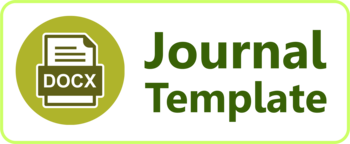PENERAPAN LEKSIKON KRAMA INGGIL OLEH GENERASI MUDA BERDASARKAN TINGKAT PENDIDIKAN SEBAGAI IMPLEMENTASI SUBASITA DI KUDUS
DOI:
https://doi.org/10.12928/mms.v2i1.3462Keywords:
Education level, Krama inggil, Lexicon, Subasita, Young generationAbstract
This study examines the application of the krama inggil lexicon by young generation based on education level as a form of implementation of subasita culture in Kudus. This study aims to describe the application of the krama inggil lexicon by today's younger generations, and to interpret the subasita culture that is reflected through the application of the krama inggil lexicon. This research is a qualitative descriptive study with a case study model. This study used 14 informants as data sources. The data of this research are in the form of informants' utterances which are indicated to contain the krama inggil lexicon. The technique of collecting data used observation techniques, listening proficiently, interviewing techniques, recording techniques, note taking techniques and questionnaire techniques. The data analysis technique used a qualitative descriptive technique. The results showed that: 1) the krama inggil lexicon was produced more by the younger generation with middle and lower education level; and 2) subasita culture is applied by the younger generation in different ways.
References
Ardiani, W. M. (2017). Penggunaan Bahasa Berdasarkan Stratifikasi Sosial Di Puskesmas Kabupaten Sidoarjo: Kajian Siolinguistik. Skriptorium, 6(2).
Chaer, A., & Agustina, L. (2010). Sosiolinguistik: Perkenalan Awal. Rineka Cipta.
Effendi, K. (2015). Kepemimpinan Orangtua dalam Mendidik Anak Melalui Unggah-ungguh Basa dan Basa Semu di Lingkungan Masyarakat. PSIKOPEDAGOGIA Jurnal Bimbingan Dan Konseling, 4(1), 31. https://doi.org/10.12928/psikopedagogia.v4i1.4490
Endraswara, S. (2012). Ilmu Jiwa Jawa. Narasi.
Hayati, I. U. (2020). Unggah Ungguh dalam Bahasa Jawa yang Kian Terlupa. Etnis. https://etnis.id/unggah-ungguh-dalam-bahasa-jawa-yang-kian-terlupa/
Hidayat, R., & Setiawan, T. (2015). Interferensi Bahasa Jawa Ke Dalam Bahasa Indonesia Pada Keterampilan Berbicara Siswa Negeri 1 Pleret, Bantul. LingTera, 2(2), 156. https://doi.org/10.21831/lt.v2i2.7374
Itaristanti. (2012). Bahasa Dan Kelas Sosial : Studi Kasus Variasi Bahasa Sopir Dan Kondektur Angkutan Kota Di Yogyakarta. Edueksos, 1(Jurnal Edueksos Vol I No 1, Januari-Juni 2012), 127. https://doi.org/10.24235/edueksos.v1i1.620
Mahsun. (2011). Metode Penelitian Bahasa: Tahapan Strategi, Metode, dan Tekniknya (Edisi Revi). RajaGrafindo Persada.
Mallinson, C. (2007). Social class , social status and stratification: Revisiting familiar concepts in sociolinguistics. University of Pennsylvania Working Papers in Linguistics: Selected Papers from NWAV 35, 13(2), 149–163. https://repository.upenn.edu/cgi/viewcontent.cgi?article=1010&context=pwpl
Poerwadarminta, W. J. S., Hardjasoedarmo, C. S., & Poedjasoedira, J. C. (1939). Baoesastra Djawa. J. B. Wolters` Uitgevers Maatschappij N. V.
Raco, J. R., & Semiawan, C. R. (2010). Metode Penelitian Kualitatif: Jenis, Karakteristik, dan Keunggulannya. Grasindo.
Rahadini, A. A. (2020). Pasemon: Wujud Keeleganan Tuturan Direktif Masyarakat. Mimesis, I(1). https://doi.org/http://dx.doi.org/10.12928/mms.v1i1.1641
Ratnasari, K. N., & Jadmiko, R. S. (2018). Analysis of Use of Krama Inggil Languages From Parents on The Value of Children Charges in Ariyojeding Village Rejotangan Tulungagung. Jurnal Pendidikan Karakter, 2, 152–160. https://doi.org/10.21831/jpk.v8i2.20292
Rinzat Iriyansah, M. (2019). Ngoko and Krama in Non Formal Diglosia Situation in Lamongan (A Sociolinguistic Study). Jurnal KATA, 3(1), 76. https://doi.org/10.22216/kata.v3i1.3954
Romelah. (2016). Kekacauan Tingkat Tutur Bahasa Jawa di Lingkungan Kabupaten Kebumen Jawa Tengah. Lingua, 13(2), 1689–1699. https://doi.org/10.30957/lingua.v13i2.181
Setyawan, B. W. (2019). Fenomena Penggunaan Unggah-Ungguh Basa Jawa Kalangan Siswa Smk Di Surakarta. Widyaparwa, 46(2), 145–156. https://doi.org/10.26499/wdprw.v46i2.200
Spencer, S., Clegg, J., & Stackhouse, J. (2013). Language, social class and education: Listening to adolescents’ perceptions. Language and Education, 27(2), 129–143. https://doi.org/10.1080/09500782.2012.760585
Tobing, R. L. (2015). Tingkat Tutur dalam Budaya “Jawa” dan “Batak”: Analisis Sosio-Pragmatik. Diksi, 14(2), 102–110. https://doi.org/10.21831/diksi.v14i2.6592
Wibawa, S. (2005). Identifikasi Ketidaktepatan Penggunaan Unggah Ungguh Bahasa Jawa Mahasiswa Program Studi Pendidikan Bahasa Jawa. Litera, 4(2), 149–158. https://doi.org/https
Downloads
Published
Issue
Section
License
Copyright (c) 2021 MIMESIS

This work is licensed under a Creative Commons Attribution-ShareAlike 4.0 International License.
License and Copyright Agreement
In submitting the manuscript to the journal, the authors certify that:
- They are authorized by their co-authors to enter into these arrangements.
- The work described has not been formally published before, except in the form of an abstract or as part of a published lecture, review, thesis, or overlay journal.
- That it is not under consideration for publication elsewhere,
- That its publication has been approved by all the author(s) and by the responsible authorities tacitly or explicitly of the institutes where the work has been carried out.
- They secure the right to reproduce any material that has already been published or copyrighted elsewhere.
- They agree to the following license and copyright agreement.
Copyright
Authors who publish with Mimesis agree to the following terms:
- Authors retain copyright and grant the journal right of first publication with the work simultaneously licensed under a Creative Commons Attribution License (CC BY-SA 4.0) that allows others to share the work with an acknowledgment of the work's authorship and initial publication in this journal.
- Authors are able to enter into separate, additional contractual arrangements for the non-exclusive distribution of the journal's published version of the work (e.g., post it to an institutional repository or publish it in a book), with an acknowledgment of its initial publication in this journal.
- Authors are permitted and encouraged to post their work online (e.g., in institutional repositories or on their website) prior to and during the submission process, as it can lead to productive exchanges, as well as earlier and greater citation of published work.












